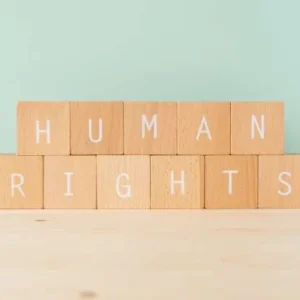A Tunisian court sentenced 51-year-old Saber Ben Chouchane to death for peaceful Facebook posts, marking the first known death sentence for nonviolent expression in Tunisia. Although he received a presidential pardon days later following widespread public outrage, the ruling represents an alarming escalation in Tunisia’s crackdown on free speech. Human Rights Watch urged authorities to end the detention and prosecution of individuals for exercising their right to freedom of expression.
Ben Chouchane, a father of three from Nabeul, was arrested in January 2024 while on his way to a medical appointment and was held in pretrial detention longer than the 14-month legal limit. His family reported that he was denied necessary medical care during his detention. On October 1, 2025, the Nabeul Court of First Instance sentenced him to death under several laws, including Article 72 of the penal code for “attempting to change the form of government,” Article 67 for “insulting the president,” and Article 24 of the Cybercrime Decree-Law 54 for “spreading fake news.”
Human Rights Watch reviewed Ben Chouchane’s social media posts and confirmed they were peaceful expressions protected under international human rights law. His posts included photos from a protest demanding the release of political prisoners and calls for demonstrations to defend the 2011 Tunisian revolution. Despite this, a five-judge panel imposed the harshest possible sentence, reflecting Tunisia’s deepening repression of dissent under President Kais Saied’s rule.
Since Saied’s power grab in July 2021, Tunisian authorities have increasingly targeted journalists, activists, and social media users with arbitrary arrests and prosecutions. The government has also weakened judicial independence, using the courts as tools of political repression. At least a dozen dissidents have faced charges that could lead to the death penalty, while others have received long prison terms.
Although Tunisia has not carried out executions since 1991, courts continue to issue death sentences. Amnesty International reported that more than 12 such sentences were handed down in 2024, with at least 148 people currently on death row. Human Rights Watch reaffirmed its opposition to capital punishment, emphasizing its inherent cruelty, irreversibility, and susceptibility to judicial error.
As a signatory to international human rights treaties, Tunisia is obligated to uphold freedom of expression, fair trial rights, and protection from arbitrary detention. Human Rights Watch said that the swift presidential pardon following Ben Chouchane’s conviction underscores how extreme and unjustified the ruling was, calling it a serious blow to Tunisia’s judiciary and its credibility on human rights.






